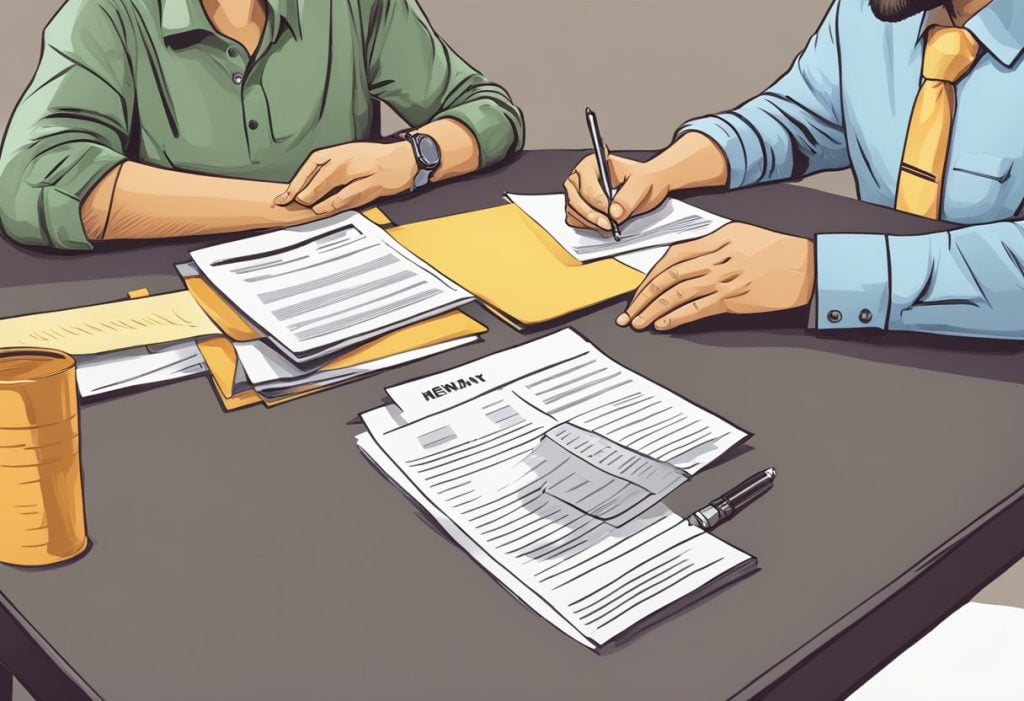Last Updated on March 18, 2024 by Kelvin Nielsen
If you’re a tenant in Florida and you’re experiencing problems with your landlord, you may be wondering what your options are. One option is to sue your landlord. While this may seem like a daunting process, it’s important to know that there are resources available to help you navigate the legal system.

Before you decide to sue your landlord, it’s important to understand your rights as a tenant in Florida. Florida law provides certain protections for tenants, including the right to a habitable living space, the right to privacy, and the right to be free from discrimination.
If your landlord has violated any of these rights, you may have grounds for a lawsuit. It’s also important to keep in mind that suing your landlord should be a last resort, and it’s always a good idea to try to resolve the issue through other means first.
Related Posts:
- Florida Air Conditioning Laws: What Landlords Need to Know
- Landlord Rights in Florida: A Comprehensive Guide
- Tenant Relocation Allowance in Florida
Legal Procedures for Suing Your Landlord
If you’re experiencing problems with your landlord in Florida, suing them could be an option. However, before taking legal action, it’s important to understand the legal procedures involved.
When and How to File a Lawsuit
You may sue your landlord for various reasons, such as breach of the lease, failure to make necessary repairs, or lease termination without a just cause.
To file a lawsuit, you should first consult an attorney or a law firm for legal advice. Then, you need to file a complaint with the county court and pay the filing fee.
Gathering Evidence and Building Your Case
To win your case, you need to gather evidence and build a strong case. This may include documenting all communication with your landlord, taking pictures of the property’s condition, and gathering any relevant lease agreements.
It’s also important to keep all receipts and invoices related to expenses you incurred due to your landlord’s neglect.
The Court Process and Seeking Judgments
Once you file a lawsuit, the court process begins. You may have to attend mediation to try and resolve the issue before going to trial. If the case goes to trial, you’ll need to present your evidence to the judge.
If you win, the judge may award you damages, reimbursement for expenses, and attorney fees. However, if the landlord doesn’t pay, you may have to go through the process of collecting the judgment.
Related Posts:
- How Long Does a Landlord Have to Fix Something in Florida?
- Florida Landlord Carpet Replacement Law
- Can a Landlord Enter Without Permission in Florida?
Frequently Asked Questions
What are valid reasons for suing a landlord in Florida?
You can sue your landlord in Florida for various reasons, including breach of lease, failure to maintain the property, illegal eviction, and discrimination.
It is important to have evidence to support your claim, such as photographs, emails, and witness statements. Consult with a lawyer or free legal service for advice on your specific situation.
How can I pursue legal action for a leaking ceiling in my rental property?
If your landlord fails to fix a leaking ceiling in your rental property, you can pursue legal action by sending a written notice to the landlord stating the issue and requesting a repair.
If the landlord fails to respond or fix the issue, you can file a lawsuit in small claims court.
What steps should I take to sue for neglect of maintenance in my Florida apartment?
To sue for neglect of maintenance in your Florida apartment, you should first document the issue with photographs, emails, and any other evidence. Then, send a written notice to the landlord requesting a repair.
If the landlord fails to respond or fix the issue, you can file a complaint with the Florida Department of Agriculture and Consumer Services or file a lawsuit in small claims court.
Can a tenant in Florida sue for emotional distress caused by a landlord?
Yes, a tenant in Florida can sue for emotional distress caused by a landlord if the landlord’s actions were extreme and outrageous, and caused severe emotional distress.
However, proving emotional distress can be difficult, and it is recommended to consult with a lawyer for advice on your specific situation.
What are the costs associated with filing a lawsuit against a landlord in Florida?
The costs associated with filing a lawsuit against a landlord in Florida vary depending on the specific case and the court in which the lawsuit is filed.
Generally, there are filing fees, service fees, and attorney fees. It is recommended to consult with a lawyer or free legal service for advice on the costs associated with your specific case.
How do I report a landlord for illegal actions or misconduct in Florida?
You can report a landlord for illegal actions or misconduct in Florida by contacting the Florida Department of Agriculture and Consumer Services or filing a complaint with the local housing authority.
It is recommended to consult with a lawyer or free legal service for advice on the specific steps to take in your situation.
Related Posts:
Disclosure: The content herein isn’t a substitute for advice from a professional attorney. It’s only meant to serve educational purposes. If you have a specific question, kindly seek expert attorney services.
Sources: Florida Department of Agriculture and Consumer Services , FL Statutes Chapter 83 Part II

Amanda Rose is a seasoned landlord with 13+ years of expertise in overseeing diverse properties. Her adept management spans single and family homes, along with multi-family apartments and condos, across Wyoming and South Dakota. Her commitment and proficiency have cemented her status as a thriving property management professional.
She is a member of the following organizations: Wyoming Landlord’s Association, National Association of Residential Property Managers (NARPM), Wyoming Apartment Association, South Dakota Multi-Housing Association (SDMHA), and South Dakota Landlord Association (SDLA).







